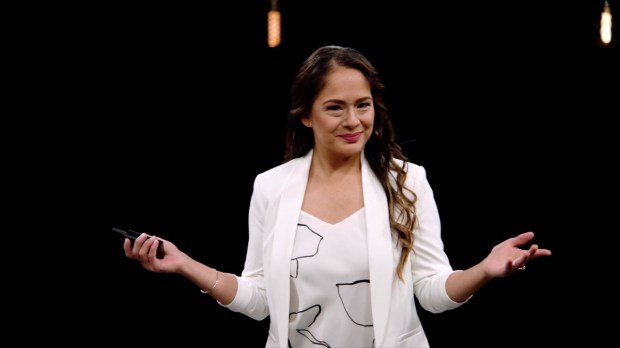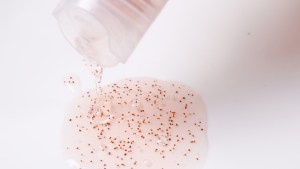When we’re grocery shopping and cooking, we’ve usually got a lot of things on our minds.
What’s on sale today? Will we eat this spring mix before it goes bad? Is there even a chance the kids will take a bite of these brussels sprouts?
What we might not be thinking about is the morality of what we’re buying and eating.
But Catholic writer and speaker Miriam Hidalgo urges us to consider the morality of the food we put on our plates.
Hidalgo has more than 20 years experience in the fields of catechesis, youth ministry, and Hispanic ministry at the parish, diocesan, and national level. Among other roles, she has served as the Director of Hispanic Catechesis and Director of Youth & Young Adult Ministry for the Archdiocese of Hartford and co-authored the book The Joy of Adolescent Catechesis.
Currently Hidalgo is a full-time wife and mother of two baby boys, and she continues to collaborate or provide workshops locally and throughout the country for various Catholic parishes, dioceses, schools, and organizations.
She shared her interesting and well-researched perspective on the morality of food in her OSV Talk, Faith and the Luxury of Food.
“Beyond taste and satisfaction, there’s a spirituality that comes with the food that we eat,” she says. “Jesus knew this. It’s why he gives us his body and blood in the Holy Eucharist.”
So how exactly do we experience the spirituality that comes with food? Before meals, Catholics usually pray the familiar prayer: “Bless us, O Lord, and these thy gifts …”
But often, the spiritual connection stops there. “Our ignorance about the suffering, the damage, and the corruption behind our food makes it all almost, dare I say, hypocritical,” Hidalgo says.
A first-hand witness
Hidalgo uses a mix of personal stories and hard data to make her case. Two stories in particular, she said, changed the way she thought about food.
The first took place in the rainforest of Guatemala. She recounts,
When I was in one of my many visits to Guatemala, which is where my parents are from, I went horseback riding with my husband and I was surprised to see so much dry and dead land. It looked as if a fire had gone through and just wiped everything away. We were told that cattle ranchers from the U.S. had purchased that land to raise livestock, and when they were done using the land, because it couldn’t be used anymore, they left. And of course I felt very ashamed. This is happening all over the world.
Another took place in the Dominican Republic, where Hidalgo traveled on a mission trip.
The fishing industry has also become one of the most corrupt businesses on this planet. When I was in the Dominican Republic … I was in one of their many beautiful beaches and I happened to notice a few large boats some miles away from the shore. In my conversations with the locals, I was told that those boats were from the U.S. and I’ll never forget what the people said to me. They were frustrated and upset, and they said those boats are stealing all of the fish.
Trillions of sea creatures are pulled out of the ocean every year, not to mention all of the habitats and ecosystems that are destroyed. “We’re in danger of seeing fishless oceans,” she said.
Besides her own experiences, Hidalgo includes various other stories and statistics about the impact of our food choices. She advocates for a more thoughtful and considerate approach to how we buy and consume food.
Yet despite her research and first-hand witness, she says her message isn’t something a lot of people want to hear.
I’m well aware that there are many arguments against everything that I have shared with you. I know that this topic arouses feelings of anger and defensiveness and most of all discomfort.
But she invites her audience to view this discomfort as a blessing. “We’re being given the opportunity here to make profound change.”
She encourages all of us to take the long view and consider what’s best for our children, and their children.
Change is difficult, she says, “but remember we can do all things in Christ who strengthens us.”
Check out Hildago’s entire OSV talk below:



